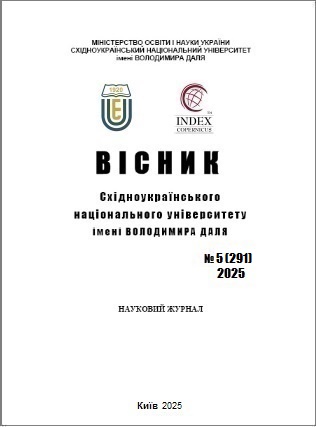Optimization of multi-flow electrohydraulic drive operation using artificial intelligence methods
DOI:
https://doi.org/10.33216/1998-7927-2025-291-5-36-44Keywords:
electrohydraulic drive, multi-flow drive, artificial intelligence, neural networks, machine learning, diagnostics, predictionAbstract
The article explores the issue of improving the efficiency of multi-flow electrohydraulic drives, which are extensively utilized in industrial, mobile, and aviation systems. These systems are characterized by nonlinear dynamics, parameter uncertainties, and the complexity of mathematical modeling, which create significant challenges for conventional control methods. To address these difficulties, a comprehensive approach is introduced, combining artificial intelligence methods such as neural networks, fuzzy logic, and genetic algorithms to optimize system performance.
A critical aspect of the research is the development of a neural network model that enables accurate identification of drive parameters and reliable prediction of its dynamic behavior. This approach significantly surpasses traditional modeling techniques in precision and adaptability. The hybrid neuro-fuzzy control system integrates expert knowledge with the flexibility of neural networks, providing enhanced positioning accuracy, improved energy efficiency, and increased resilience to external disturbances. Additionally, the implementation of genetic algorithms for multi-criteria optimization allows for an effective balance between motion accuracy, energy consumption, and smooth operation of the mechanism.
Another key contribution is the diagnostic and technical condition forecasting system based on machine learning. This system demonstrates high reliability in detecting anomalies, contributing to reduced maintenance costs and prolonged operational lifespan. Experimental studies validate the effectiveness of the proposed methods: under substantial load variations, deterioration in positioning accuracy is reduced by three times compared to traditional control systems. The proposed algorithms lead to lower operating costs, higher equipment productivity, and improved reliability of automated control systems.
The results of this study have practical applications in industrial automation, robotic complexes, aviation, and military technologies, as well as in mechatronic systems where precision control, energy efficiency, and operational reliability are crucial. Future research may focus on refining machine learning algorithms for real-time applications and integrating these approaches into the industrial Internet of Things (IIoT) framework. By advancing these methodologies, this study contributes to the development of intelligent control systems capable of meeting the evolving demands of modern automation and mechatronics.
References
1. Feng H., Song Q., Ma S., Ma W., Yin C., Cao D., Yu H. A new adaptive sliding mode controller based on the RBF neural network for an electro-hydraulic servo system. ISA Trans. 2022. Vol. 129. P. 472–484.
2. Guo Y., Xiong G., Zeng L., Li Q. Modeling and Predictive Analysis of Small Internal Leakage of Hydraulic Cylinder Based on Neural Network. Energies. 2021. Vol. 14. P. 2456.
3. Huang K., Wu S., Li F., Yang C., Gui W. Fault diagnosis of hydraulic systems based on deep learning model with multirate data samples. IEEE Trans. Neural Netw. Learn. Syst. 2022. Vol. 33, No. 11. P. 6789–6801.
4. Makansi F., Schmitz K. Data-Driven Condition Monitoring of a Hydraulic Press Using Supervised Learning and Neural Networks. Energies. 2022. Vol. 15. P. 6217.
5. Nguyen M. H., Dao H. V., Ahn K. K. Adaptive Robust Position Control of Electro-Hydraulic Servo Systems with Large Uncertainties and Disturbances. Appl. Sci. 2022. Vol. 12. P. 794.
6. Ren H., Jiao S., Wang X., Kaynak O. Fractional order integral sliding mode controller based on neural network: Theory and electro-hydraulic benchmark test. IEEE/ASME Trans. Mechatronics. 2022. Vol. 27, No. 3. P. 1457–1466.
7. Su W., Ren W., Sun H., Liu C., Lu X., Hua Y., Wei H., Jia H. Data-Based Flow Rate Prediction Models for Independent Metering Hydraulic Valve. Energies. 2022. Vol. 15. P. 7699.
8. Tang S., Zhu Y., Yuan S. An improved convolutional neural network with an adaptable learning rate towards multi-signal fault diagnosis of hydraulic piston pump. Adv. Eng. Inform. 2021. Vol. 50. P. 101406.
9. Tang S., Zhu Y., Yuan S. Intelligent fault diagnosis of hydraulic piston pump based on deep learning and Bayesian optimization. ISA Trans. 2022. Vol. 129. P. 555–563.
10. Yang G., Yao J. Multilayer neuroadaptive force control of electro-hydraulic load simulators with uncertainty rejection. Appl. Soft Comput. 2022. Vol. 130. P. 109672.

